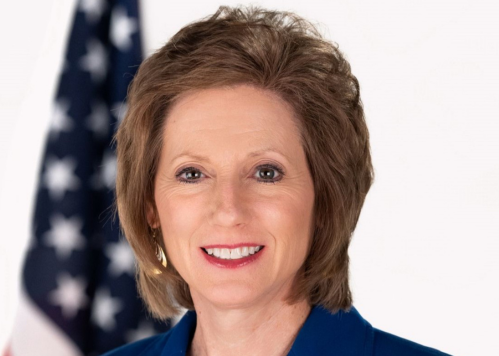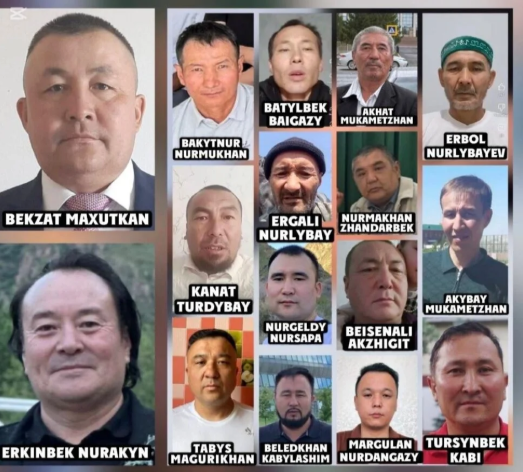USCIRF Releases New Report on Violations of Religious Liberty in Russia
- info775148
- 2. 7.
- Minut čtení: 3
The comprehensive document highlights the persecution of Jehovah’s Witnesses, Scientologists, Falun Gong practitioners, and others.
July 2, 2025

The USCIRF, the United States Commission on International Religious Freedom, released on June 30 its new report on Russia. The USCIRF is an independent, bipartisan U.S. federal government commission created by the 1998 International Religious Freedom Act (IRFA). Its Commissioners are appointed by the President and by Congressional leaders of both political parties.
The comprehensive document outlines how the Russian government utilizes various laws to target religious individuals and groups that it perceives as threats. Among these laws is the religion law, which penalizes individuals and organizations for conducting broadly defined “missionary activities” without government approval. Authorities have labeled several peaceful religious organizations as “extremist,” “undesirable,” or “terrorist,” despite a lack of evidence or specific accusations of violence against them.
The government also penalizes human rights activists who document violations of freedom of religion or belief (FoRB), individuals who engage in expressions deemed religiously offensive, and religiously motivated anti-war protesters. This is done through the enforcement of the country’s foreign agents law, blasphemy law, and laws related to war censorship.
The document presents statistics on the enforcement of laws regarding illegal missionary activities, including fines and deportations. It also outlines cases where individuals have been prosecuted for expressing perceived offensive views toward religion, religious texts, and religious leaders. Additionally, anti-war protesters and religious leaders who have voiced opposition to the war in Ukraine in religious terms have faced targeting. The government has attempted to delegitimize prominent anti-war religious leaders by including them on the country’s foreign agents registry.
Human rights activists and independent media addressing issues related to Freedom of Religion or Belief (FoRB) have faced significant repression. The document highlights the imprisonment and mistreatment of human rights lawyer Bakhrom Khamroev, as well as the designation of Crimean Tatar journalist and human rights defender Lutfiye Zudiyeva as a “foreign agent.” Additionally, several organizations focused on FoRB-related human rights have been added to the foreign agents registry.
The document also discusses the targeting of various religious groups, including Muslims accused of terrorism for their involvement in Hizb ut-Tahrir (HT), conscientious objectors denied alternative civilian service, Jehovah’s Witnesses, Tablighi Jamaat members, Said Nursi followers, Falun Gong practitioners, Protestants, Scientologists, Allya Ayat members, Ukrainian Christians, and Crimean Tatar Muslims.
Jehovah’s Witnesses remain the most severely persecuted group. The document reports that, “Since the Russian Supreme Court declared Jehovah’s Witnesses ‘extremist’ in 2017, Russian law enforcement has reportedly searched nearly 2,200 member homes and brought criminal charges against more than 860 for their religious beliefs and activities. As of May 2025, roughly 180 Jehovah’s Witnesses remain in Russian custody, either in pretrial detention, imprisoned, under house arrest, or subjected to forced labor.”
Some specific cases are referenced. “In February 2025, the Yoshkar-Ola City Court in the Republic of Mari El fined nine Jehovah’s Witnesses 600,000 rubles ($7,380) each and another one 500,000 rubles ($6,150) for their involvement in worship meetings. That same month, the Cherkessk City Court of Karachay-Cherkessia sentenced Yevgeniy Semenov to six years and three months in prison for sharing his religious beliefs with others. In March 2025, the Altai Regional Court replaced on appeal the suspended sentence of Sergey Lukin with four years and six months of forced labor for holding meetings to discuss Jehovah’s Witness religious beliefs. Imprisoned Jehovah’s Witnesses face prohibitions on their religious activities, mistreatment, and gross medical neglect. In March 2025, 67-year-old Valery Bailo died while serving a two-and-a-half-year sentence for his Jehovah’s Witness religious activities. According to his family, prison authorities failed to provide Bailo with adequate medical care despite his repeated visits to the prison hospital.”
Jehovah’s Witnesses are also persecuted in Russian-occupied regions of Ukraine, the document reports. In Crimea, “the Russian-controlled Gagarin District Court of Sevastopol in January 2025 sentenced Jehovah’s Witnesses Sergey Zhigalov and Viktor Kudinov to six years in prison each for organizing religious activities. As of May 2025, 13 Jehovah’s Witnesses from Russian-occupied Crimea remain imprisoned, with all of them serving sentences of six years or more.”
The document concludes with recommendations for the U.S. Department of State to designate Russia as a “country of particular concern” due to its systematic, ongoing, and egregious violations of religious freedom. It also suggests imposing targeted sanctions on Russian government agencies and officials responsible for these violations and advocating for the release of prisoners of conscience imprisoned by Russia for their religious beliefs.
Source: bitterwinter.org










Komentáře